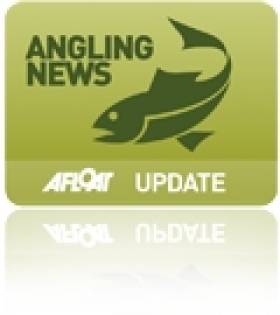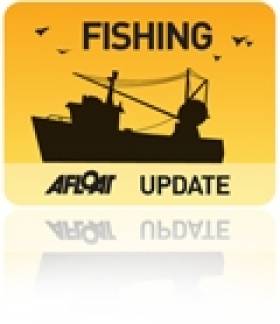Displaying items by tag: Institute of Fisheries Management
English Anglers Reel as £22 million in Fishing Fees Pour Away
#More than one-and-a-quarter million anglers in England paying £22 million a year for fishing rod licences are being short changed because the money is not being spent to maintain and develop freshwater fisheries, as the law requires.
The Environment Agency has cut the number of qualified employees in its fisheries service, according to the president of the Institute of Fisheries Management (IFM) Peter Spillett.
Without skilled professionals the agency was unlikely, he said, to be able to make decisions enabling it to conduct its duties competently. It needed to "to demonstrate to anglers that they are getting the service for which they are paying."
In a letter to David Jordan, the agency's operations director, Dr. Spillett warns against the agency "reviewing its corporate ambitions and rapidly restructuring itself" without awaiting the results of its internal Fisheries Refresh project which had already identified concerns.
"The lack of a separate fisheries function at operational level...means that the limited opportunities for skills development and career progression will be further restricted."
Staff, he said, should be encouraged to improve their skills.
Much expertise had already been lost and more would be if regional fisheries specialists were removed "as seems likely in the new structure of the agency."
Replying Mr. Jordan said the agency shared the IFM's "determination to secure the best deal for fisheries." Issues reflecting the institute's concerns had been identified and he was confident it would "deliver the best options we can achieve."
The agency's aim, he said, was to simplify how it worked, reduce bureaucracy, have the right people in the right place with the right skills and learn from experience outside the organisation, including the IFM, the Angling Trust and associated bodies.
Dr. Spillett said the agency should show how its fishing licence income was spent. Clearly a very large slice funded its head office, only about 40 per cent going to its regions and areas to spend on fisheries.
Because the agency was required to spend its licence income on fisheries the work ought to be unaffected by cuts in Government grant-in-aid.
Dr. Spillett said much fisheries work appeared to be directed at "mitigating and preventing" damage caused by others, including other agency functions such as flood defence.
This year's IFM conference will be in Liverpool October 7 - 9.
Eamon Cusack Is New Chair of Institute of Fisheries Management
#Fishing - One of Ireland’s most eminent fisheries experts and a recent CEO of the Shannon Regional Fisheries Board has been elected chairman of the Institute of Fisheries Management.
Eamon Cusack will assume the chair at the UK-based international body that promotes sustainable management of freshwater and marine fisheries.
Cusack said he was “passionate” about protecting and rebuilding fisheries threatened by habitat damage and over-exploitation.
To ensure their future, he would seek to continue to build successful partnerships between government and non-government organisations.
Cusack succeeds Ian Dolben, who served as chairman over the past five years. Dolben credited the success of the institute during his term to members taking on voluntary roles, changing its public face and taking its members’ services to a new level.
Eamon Cusack has over 35 years’ experience in the development and management of inland fisheries, including EU-funded projects, and has been an active member of the institute for more than 30 years.
He is currently chairman of the Shannon Fishery Partnership, which advises on the management of the ESB’s fisheries on the River Shannon, and a director of Recreational Angling Ireland.
He was a ministerial appointee to the Irish Central Fisheries Board, which oversees Irish national fisheries policy and strategy.
A native of Galway, Cusack grew up on the banks of the River Dodder in Dublin. While a young member of Dodder Anglers, the largest angling club in Ireland, he became aware of the many pressures facing fisheries which began his lifelong interest in their management.






























































